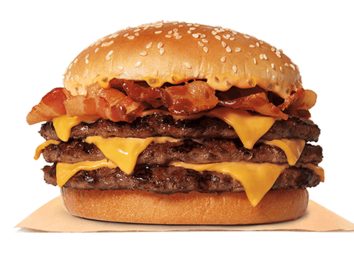6 Surprising Side Effects of Eating a Burger, Says Science
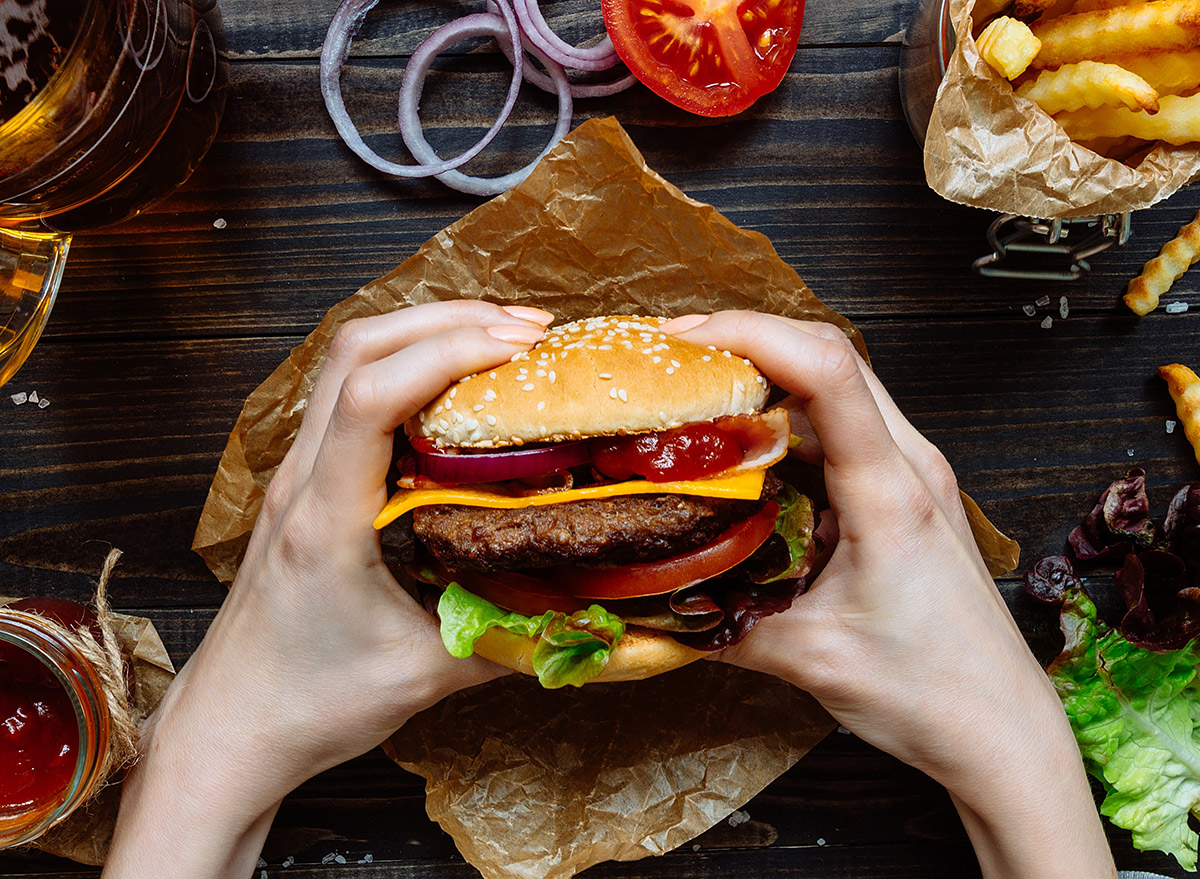
You can smell it. It's in the air—the aroma of grilled meat, especially hamburgers as their drippings sizzle onto coals and create the smoke that makes your mouth water. Someone in the neighborhood is having a barbecue, and they're grilling up a lot of hamburgers.
And we Americans do eat a lot of hamburgers. The USDA estimates annual consumption at 2.4 burgers per American, per day. Even if you aren't a frequent burger eater year-round, you probably eat more of them than usual during the summertime when backyard grills come out of hibernation.
While we're in the heat of grilling season and burgers are being tossed on Webers everywhere, it seems that it's prime time to review the potential side effects and the possible health hazards of eating hamburgers. Read on to learn about what happens to your body when you eat a lot of hamburgers, and for more, don't miss Secret Side Effects of Eating Watermelon, Says Science.
You may experience weight gain.
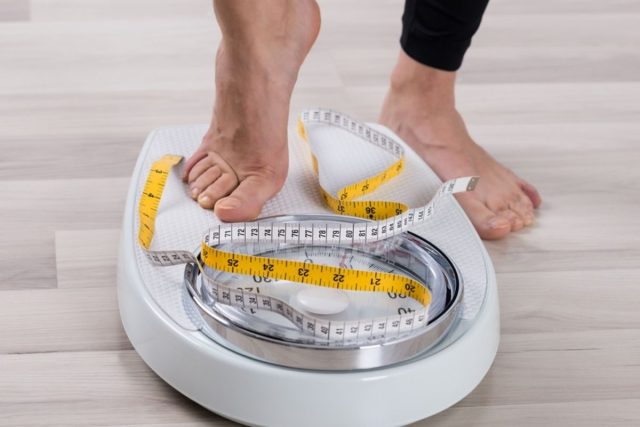
A quarter-pound Whopper with cheese from Burger King packs 740 calories, 57% of which come from fat. For some perspective, a moderately active woman between the ages of 26 and 50 needs 2,000 calories per day, according to the Dietary Guidelines for Americans 2020-2025. That fast-food burger is almost half of all the calories your body needs to operate for a day.
With those numbers in mind, it's no surprise that a study published in the journal Ethnicity & Disease found that women who ate hamburgers from restaurants at least twice a week were 26% more likely to become obese than women who rarely ate burgers over the course of the study's 14-year time period.
Your cholesterol will likely rise.
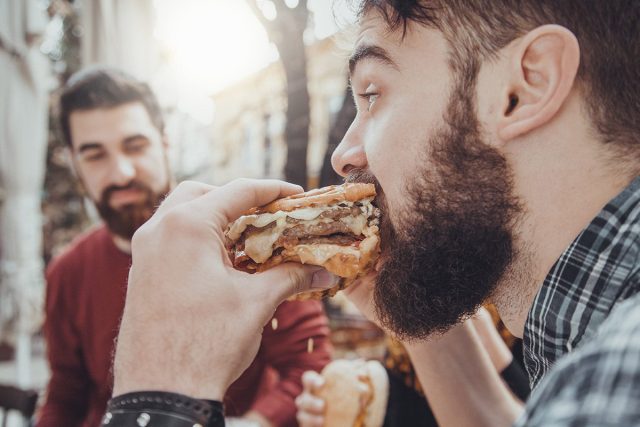
"We recommend limiting red meat and reducing the amount of fatty red meats because they are high in saturated fats which can raise levels of LDL, low-density lipoprotein," says Julia Zumpano, RD, LD, who specializes in preventative cardiology and rehabilitation in the Medical Nutrition Therapy Department at the Cleveland Clinic.
LDL is known as the bad kind of cholesterol because it tends to stick to the walls of blood vessels, where it can narrow them, stifling blood flow and increasing your chances of having a heart attack or stroke. Studies show hamburgers' high levels of saturated fats and trans fatty acids raise LDL cholesterol while lowering the "good" HDL cholesterol.
Eat This! Tip: "If you're eating red meat, choose lean cuts of those types," says Zumpano. "If you're going to eat a burger, make your own with 90 percent lean ground beef or think about having a steak instead or a lean grilled pork chop. For cardiovascular health, you're better off getting four grams saturated fat from a nice piece of steak than the same from fast food and commercial baked foods."
You'll have an increased risk of diabetes.

When you eat a lot of hamburgers from fast-food joints or cooked at home, you're also ingesting a lot of sugar in the form of high fructose corn syrup (HFCS) with condiments like ketchup, barbecue sauce, pickle relish, and even the bun. This inexpensive corn sweetener is notorious for quickly raising blood sugar. Over time, high blood sugar can lead to insulin resistance and pre-diabetes, and eventually full-blown type 2 diabetes. The fact that most burger buns are made with bleached white flour, which is devoid of fiber, doesn't help either.
A study in Circulation found that people who ate at fast-food restaurants more than twice a week had a higher risk of metabolic syndrome, a cluster of health problems that include high blood sugar and a poor cholesterol profile, type 2 diabetes, and coronary heart disease than people who reported not eating fast food.
Eat This! Tip: Zumpano's burger building improvements: Use mustard instead of ketchup. "Most mustard is low sodium and rarely contains sugar." Replace cheese with toppings like "vegetables, pickled cabbage, or avocado." And a 100% whole wheat bun is preferred because it contains fiber, which slows digestion and the influx of sugars into the bloodstream. "Try the thin whole-grain buns, which are lower in calories, or eat your burger open-faced, just the bottom of the bun, with a fork and knife," Zumpano says.
You may experience chronic inflammation.
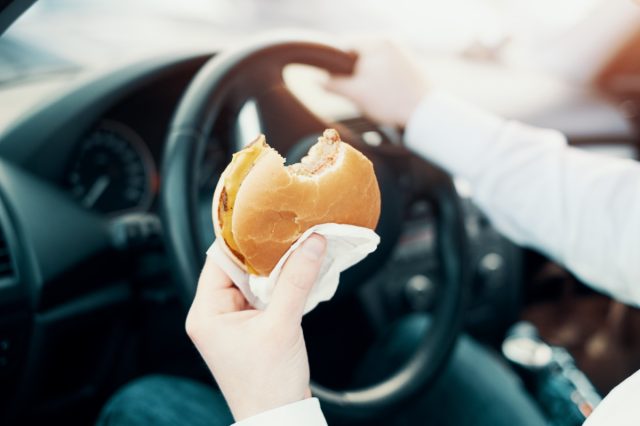
Eating red meat and processed meats like bacon and sausage is associated with high blood levels of a key marker of inflammation called C-reactive protein (CRP), according to a study in the Journal of the American College of Nutrition. Those other ingredients that typically accompany burgers—white flour buns, bacon, cheese, sugary condiments, and French fries —are all pro-inflammatory foods. A separate study in the Journal of the American College of Cardiology found that eating a lot of those inflammatory foods resulted in a 38% increased risk of cardiovascular disease when compared with people whose diets did not regularly include pro-inflammatory foods.
Your blood pressure may increase.
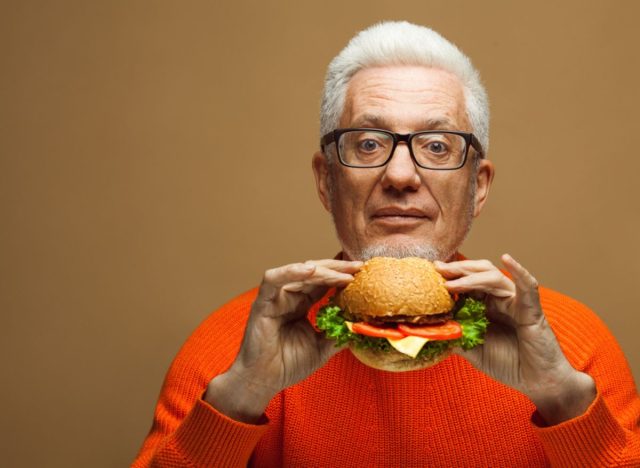
Eating a fast-food burger packs your body high amounts of salt, some containing nearly half of the daily 2,300mg the American Heart Association recommends most adults stay under. A McDonald's Big Mac, for example, packs 1010mg of sodium. A diet high in sodium can raise your blood pressure, and you know that chronic elevated blood pressure, or hypertension, is a risk factor for heart attack and stroke.
You'll be at a higher risk of kidney stones.
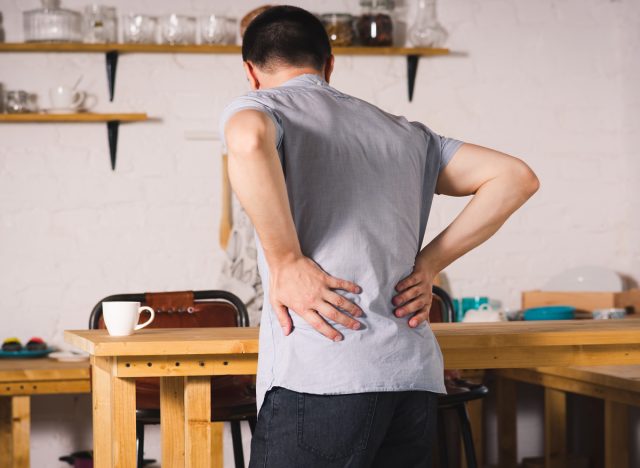
If you make a habit of eating hamburgers, your doctor may one day tell you that you have nephrolithiasis. But you'll have a clue long before you see your doc because you'll already be suffering from the extreme pain of kidney stones. A diet rich in animal protein can lead to increased uric acid excretion, which forms these rock-like mineral deposits that are so painful to pass through urination. A study in the journal Clinical Science found that men who ate an extra 4 ounces of ground beef each day increased their chances of developing kidney stones by 250%.
Takeaway
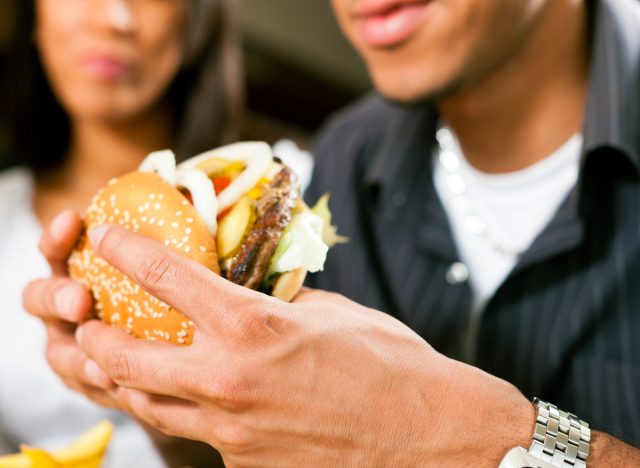
Despite knowing these potential side effects of eating burgers, we know you're probably not going to suddenly become vegetarian. But at least you know enough about health risks that you may decide to grill more fish and vegetables to limit your red meat consumption. And when you do slap that burger patty on the grill, remember to follow USDA guidelines and cook it to a safe minimum internal temperature of 160°F. Also, avoid charring the meat. Studies suggest that very well-done meat is linked to certain cancers, especially colon cancer. Eating healthy is the most effective preventive step you can take. Start getting more the 50 Best Foods for Lowering Your Cancer Risk.



